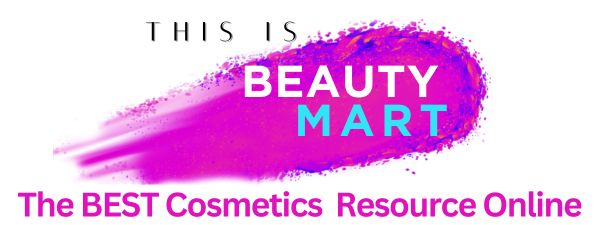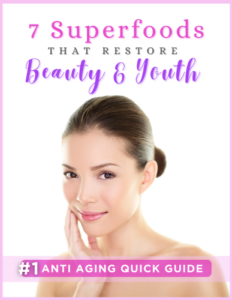Are you worried about the chemicals lurking in your body wash? It’s a valid concern since many products contain harmful ingredients such as Sodium laureth sulfate and Parabens. This article will guide you through these risky additives, why they’re dangerous, and how to avoid them.
Let’s clean up your shower routine for good!
Key Takeaways
- Sodium Laureth Sulfate (SLES) and Sodium Lauryl Sulfate (SLS) are common ingredients in body washes that can cause skin irritation and dryness. Avoid body washes that contain these foaming agents.
- Parabens, commonly used as preservatives in body wash products, have been linked to hormonal imbalances and potential health risks. Opt for paraben-free body washes or choose natural alternatives instead.
- Fragrance in body wash often contains harmful substances like phthalates and synthetic musks that can trigger allergies or have toxic effects. Look for fragrance-free options or choose products scented with natural essential oils instead.
Table of Contents
Common Ingredients to Avoid in Body Wash
Sodium Laureth Sulfate (SLES), Sodium Lauryl Sulfate (SLS), Triclosan, Parabens, Benzophenone-3, and fragrance are common ingredients to avoid in body wash.
Sodium Laureth Sulfate (SLES)
Sodium Laureth Sulfate, known as SLES, serves as a foaming agent in many body washes. Its purpose is to create the soapy lather we associate with cleanliness. However, it’s one of the top ingredients you should avoid when selecting a body wash.
Frequent exposure to this compound can lead to skin irritation and dryness due to its stripping properties. In extreme cases, it might even result in harmful disruptions of your skin’s natural oil balance.
So next time you go shopping for body wash products, spare a moment to check the ingredient list and steer clear from those containing Sodium Laureth Sulfate (SLES).
Sodium Lauryl Sulfate (SLS)
Sodium Lauryl Sulfate (SLS) is a common foaming agent found in many body wash products. It creates the lather that we often associate with a good cleansing experience. However, it’s important to be cautious of this ingredient as it can potentially cause skin irritation and dryness.
SLS has been known to strip away the natural oils on our skin, leaving it feeling tight and uncomfortable. To avoid these potential issues, look for body washes that are labeled “SLS-free” or opt for gentler alternatives that use natural plant-based cleansers instead.
Remember, choosing a body wash without Sodium Lauryl Sulfate (SLS) can help maintain your skin’s moisture balance and keep it feeling soft and hydrated. By being mindful of the ingredients in your beauty products, you can ensure healthier and happier skin.
Triclosan
Triclosan is an antibacterial agent commonly found in body wash products, but it’s important to avoid this ingredient. Studies have shown that triclosan can disrupt hormones and contribute to the development of antibiotic-resistant bacteria.
This chemical has also been linked to skin irritation and allergic reactions. To protect your health, choose a body wash that does not contain triclosan and opt for natural alternatives instead.
Parabens
Parabens are preservatives commonly used in body wash products to prevent the growth of bacteria and mold. However, they have raised concerns due to their potential health risks. Studies have shown that parabens can mimic estrogen, a hormone in the body, and disrupt hormonal balance.
This disruption has been linked to breast cancer development and reproductive issues. To ensure your safety, opt for body washes labeled “paraben-free” or choose natural alternatives that use plant-based preservatives instead.
Benzophenone-3
Benzophenone-3 is another ingredient commonly found in body washes that you should avoid. It is often used as a sunscreen agent to protect against UV radiation. However, studies have shown that it can be absorbed through the skin and may disrupt hormones in the body.
This can potentially lead to hormone imbalances and other health concerns. To ensure your safety, look for body wash products that do not contain Benzophenone-3 or any other harmful ingredients listed in this article.
Fragrance
Fragrance is a common ingredient found in many body wash products, but it’s important to be cautious about the fragrances used. Some fragrance ingredients, such as phthalates and synthetic musks, can actually be harmful to your health.
Phthalates have been linked to hormone disruption and potential reproductive issues. Synthetic musks have been found to accumulate in our bodies and may have toxic effects. To ensure you’re using a safer body wash, look for products that are labeled “fragrance-free” or use natural essential oils instead of synthetic fragrances.
When choosing a body wash, consider opting for products that are free from harmful chemicals like Cocamidopropyl Betaine, Methylisothiazolinone (MIT), Retinyl Acetate, and Retinyl Palmitate.
These ingredients are commonly used in body washes but they can pose risks to your health. By avoiding these potentially toxic substances in your body wash, you can protect yourself from any negative effects they may have on your well-being.
Remember to always read labels carefully when selecting a body wash product. Look for certifications or labels indicating clean and safe formulations. Additionally, do some research on specific brands and their ingredient policies to make sure you’re making an informed decision about the products you choose to use on your skin.
Potential Health Risks Associated with These Ingredients
Using body wash products that contain harmful ingredients can pose potential health risks. Ingredients like Sodium Laureth Sulfate (SLES), Sodium Lauryl Sulfate (SLS), Triclosan, Parabens, Benzophenone-3, and Fragrance have been linked to various health concerns.
For instance, SLES and SLS are known irritants that can cause skin dryness and irritation. Triclosan has been associated with hormonal disruptions and antibiotic resistance. Parabens have been found in breast tumors and are believed to mimic estrogen in the body.
Benzophenone-3 is a potential endocrine disruptor that may affect hormone function. Fragrance often contains hidden substances that can trigger allergies or sensitivities. By avoiding these ingredients in your body wash choices, you can reduce the risk of experiencing negative health effects associated with them.
Safer Alternatives to Look for in Body Wash
Look for body washes that use natural plant-based ingredients, gentle cleansers, and essential oils for fragrance. These safer alternatives can provide a refreshing and effective cleansing experience without the potential health risks associated with harmful ingredients.
Read more about these alternatives to make informed choices for your skincare routine.
Natural plant-based ingredients
Look for body wash products that contain natural plant-based ingredients. These ingredients are derived from plants and are known for their gentle and nourishing properties. They can help to cleanse your skin without stripping away its natural moisture, leaving it feeling soft and hydrated.
Natural plant-based ingredients often have antioxidant and anti-inflammatory benefits, which can help to soothe and protect your skin. Look for ingredients like aloe vera, chamomile extract, green tea extract, or lavender oil in the ingredient list of your body wash products.
By choosing products with natural plant-based ingredients, you can prioritize the health of your skin while enjoying a refreshing and effective cleansing experience.
Gentle cleansers
Choose a body wash that contains gentle cleansers. Harsh chemicals can strip the skin of its natural oils, leading to dryness and irritation. Look for ingredients like coconut oil, aloe vera, or oatmeal which are known for their soothing properties.
These gentle cleansers will effectively cleanse your skin without causing any harm. Take care of your skin by opting for a body wash with nourishing and mild ingredients that will leave your skin feeling clean and refreshed.
Additionally, gentle cleansers can be especially beneficial if you have sensitive or easily irritated skin. They provide a milder cleansing action that won’t aggravate existing conditions or cause flare-ups.
Whether you have dry, oily, or combination skin, choosing a body wash with gentle cleansers is an important step towards maintaining healthy-looking and comfortable skin.
Essential oils for fragrance
When choosing a body wash, it’s important to opt for one that uses essential oils for fragrance instead of synthetic fragrances. Synthetic fragrances often contain harmful chemicals like phthalates and synthetic musks, which can have toxic effects on our health.
On the other hand, essential oils derived from plants offer a natural and safer alternative for adding pleasant scents to body wash products. Not only do essential oils provide refreshing aromas, but they also offer potential therapeutic benefits such as relaxation or invigoration depending on the oil used.
So, when shopping for body wash, look for options that harness the power of essential oils to create delightful fragrances without compromising your well-being.
How to Read Labels and Identify Harmful Ingredients
To identify harmful ingredients in body wash, familiarize yourself with common harmful substances and look for certifications indicating safe formulations. Do thorough research on specific brands and their ingredient policies.
Familiarize yourself with the common harmful ingredients
To ensure the safety of your skin and overall health, it is important to familiarize yourself with the common harmful ingredients found in body wash. Ingredients like Sodium Laureth Sulfate (SLES) and Sodium Lauryl Sulfate (SLS) are commonly used foaming agents that can strip your skin of its natural oils.
Other ingredients to be cautious of include Parabens, Triclosan, and Benzophenone-3, which have been linked to potential health risks. By understanding these harmful ingredients, you can make informed choices when selecting a body wash that promotes your wellbeing and avoids unnecessary exposure to toxic substances.
Look for certifications and labels indicating clean and safe formulations
When selecting a body wash, it’s important to look for certifications and labels that indicate clean and safe formulations. These certifications can provide assurance that the product has undergone testing and meets certain standards for ingredient safety.
Look for labels such as “Certified Organic,” “Cruelty-Free,” or “Free from Harmful Chemicals.” Additionally, keep an eye out for specific logos like the USDA Organic seal or the Leaping Bunny logo, which signify that the product has been verified by trusted organizations.
By choosing body washes with these certifications and labels, you can feel confident in your choice and prioritize your health and well-being.
Do research on specific brands and their ingredient policies
Researching specific brands and their ingredient policies is crucial when choosing a body wash. Not all brands prioritize using safe and clean formulations, so taking the time to investigate can help you make an informed decision.
Look for transparency in labeling and certifications that indicate a commitment to safety. By doing your research, you can ensure that you’re selecting a brand that aligns with your values and provides products free from harmful ingredients.
What Ingredients Should I Avoid in a Zero Waste Body Wash?
When shopping for a zero waste body wash, it’s essential to be mindful of the ingredients and their impact on the environment. To reduce waste with zero waste body wash, avoid ingredients like sulfates, parabens, synthetic fragrances, and microbeads. Look for natural and biodegradable alternatives to promote sustainability while nourishing your skin.
Conclusion
Incorporating a body wash into your skincare routine is essential, but it’s important to be aware of the ingredients you should steer clear of. Sodium Laureth Sulfate (SLES), Sodium Lauryl Sulfate (SLS), Triclosan, Parabens, Benzophenone-3, and synthetic fragrance are among the common culprits that can potentially pose health risks.
Opt for body washes with natural plant-based ingredients and gentle cleansers instead. By reading labels and doing your research on brands’ ingredient policies, you can make informed choices for a safer and healthier bathing experience.
FAQs
1. What are some ingredients to avoid in body wash?
There are several potential dangers in body wash, including harmful chemicals like antibacterial agents, surfactants, formaldehyde releasers such as DMDM hydantoin and diazolidinyl urea.
2. Why should I steer clear of these ingredients in my shower gel?
Such unsafe chemicals found in body wash could pose health risks associated with skin irritation or allergic reactions.
3. Are there any specific substances that can be harmful in a body cleanser?
Yes, ethanolamines and BPA serve as toxic substances frequently used in the production of shower gels but should ideally be avoided due to their possible adverse effects on health.
4. Can you name other risky components commonly used in a body wash?
Quaternium and sodium hydroxymethyl are among the harmful additives found too often in the formulations of many mainstream shower gels.
5. How do I ensure my chosen product is safe from these harmful ingredients?
Be thorough! Always check for unsafe substances listed on product labels; remember that it’s best to exclude any products containing harmful additives or known allergens for a safer cleanse.
Related Reads
Curology Acne Body Wash Reviews
African Black Soap Body Wash Recipe
Essential Oil Body Wash Recipes



